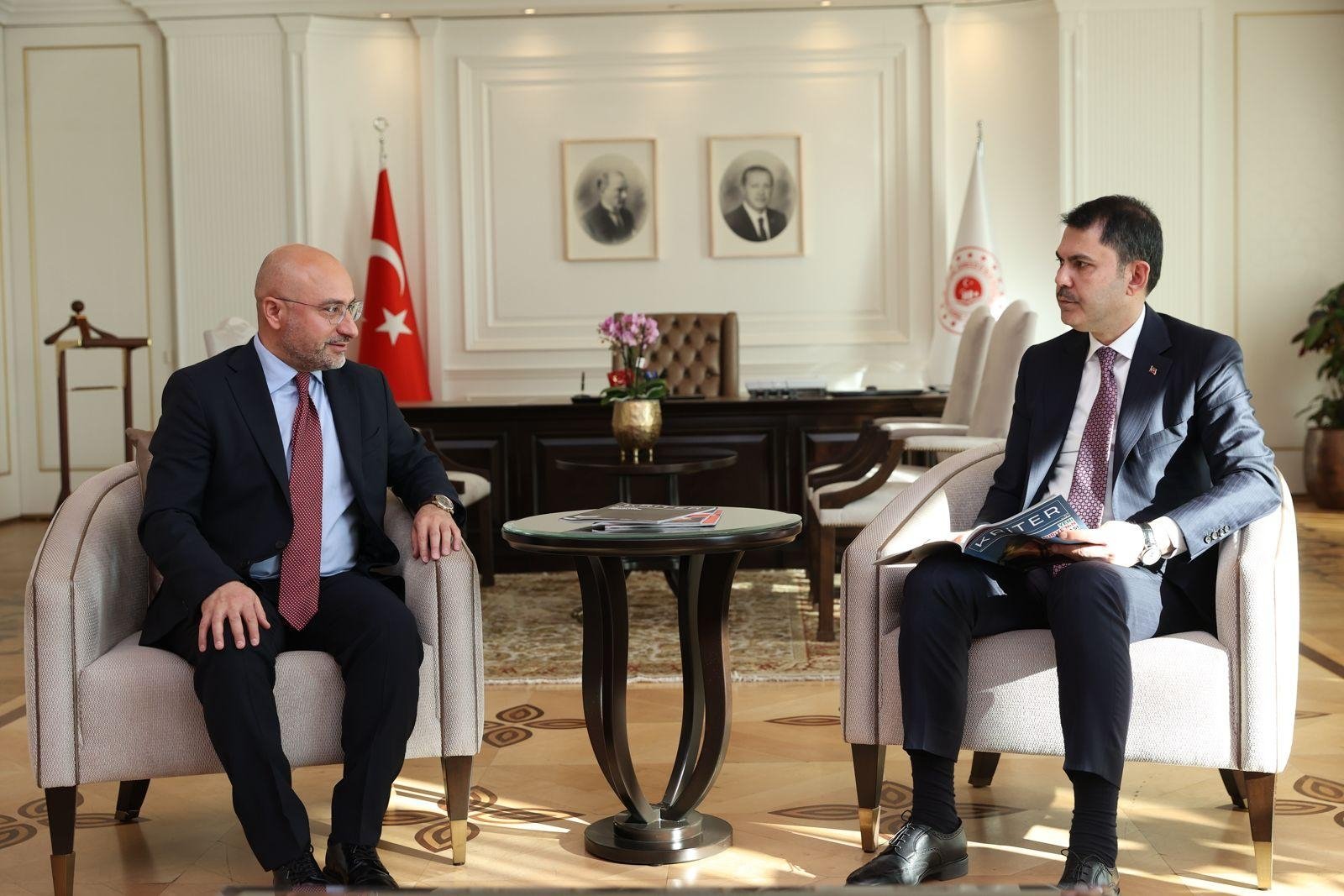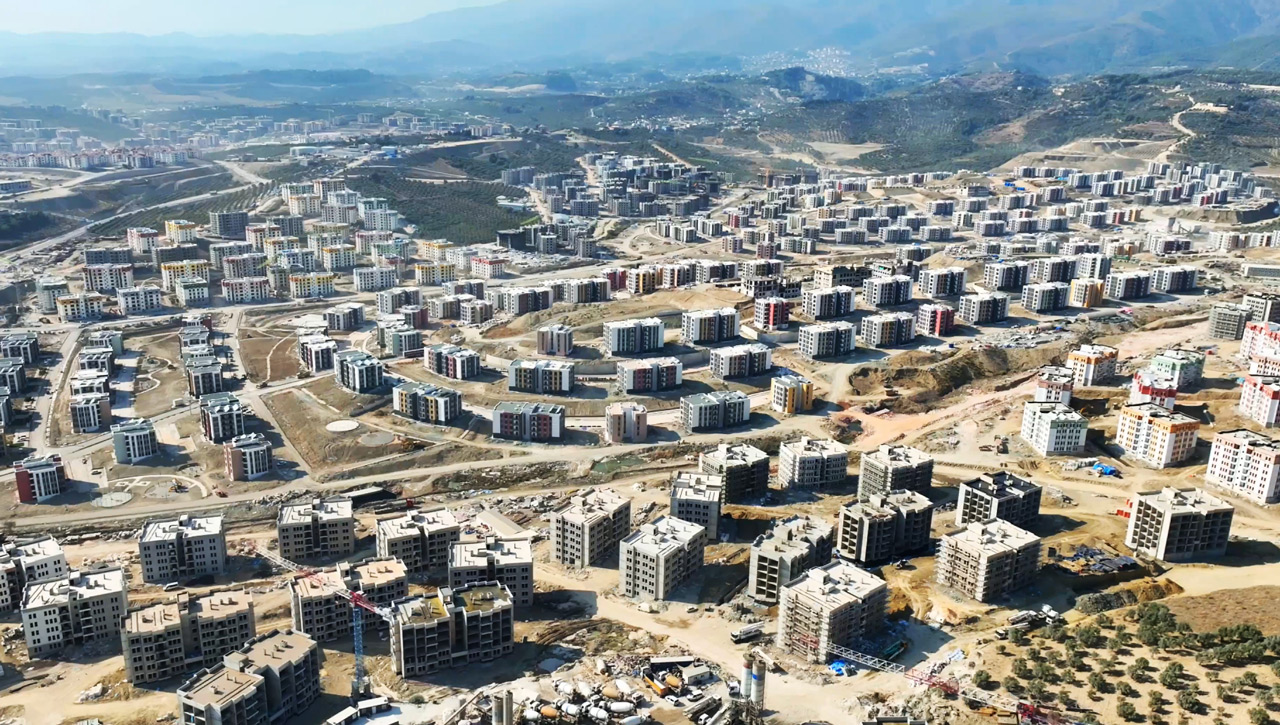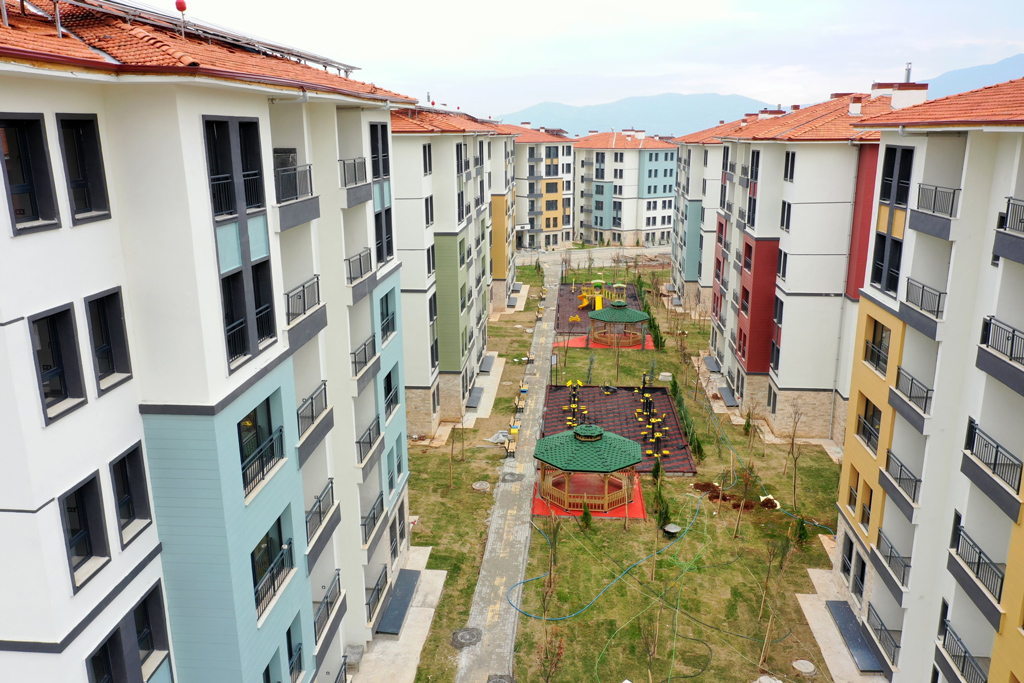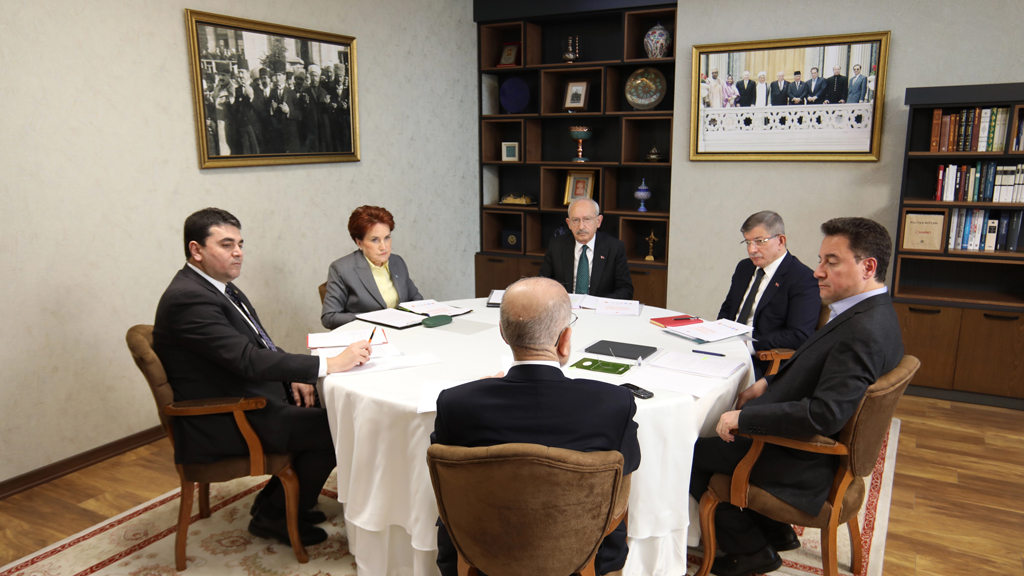Two years have passed since the devastating earthquake in Türkiye, leaving 11 cities severely affected, many without homes. The reconstruction efforts have been underway with remarkable progress.
In an exclusive interview with Murat Kurum, Minister of Environment, Urbanization and Climate Change, conducted by Foundation for Political, Economic and Social Research (SETA) General Director Nebi Miş, the Minister shared crucial updates on Türkiye's post-earthquake reconstruction efforts and urban transformation initiatives.
Minister Kurum outlined the impressive progress in rebuilding homes and infrastructure across the 11 provinces hit by the February 2023 earthquake. The government’s extensive reconstruction effort involves 182,000 architects, engineers and workers, with 201,431 homes to be rebuilt.
As of Jan. 24, 2025, 46,307 homes had been completed in Malatya, with 45% of the planned homes already built. The goal is to complete 453,000 homes by the end of 2025, supported by a reconstruction budget exceeding TL 2 trillion ($55.37 billion), including TL 584 billion allocated for 2025.
Another initiative, the 'On-site Transformation' program, has already dedicated TL 23 billion to revitalize the hardest-hit city centers. This project aims to rebuild both the region and its economy, creating a sustainable future for affected communities.
The Ministry also focuses on earthquake risk in Istanbul, where 1.5 million homes are at high risk. Minister Kurum revealed that 907,000 homes in the city have already been transformed. However, he expressed concerns over the lack of proactive measures from the Istanbul Metropolitan Municipality and announced plans for new regulations to ensure the city’s preparedness. The goal is to complete Istanbul's transformation by 2025.
Urban transformation efforts are tailored to citizens' needs, with initiatives like the Social Housing campaign, the “Half Is Ours” project, and grants and loans. Over 1.4 million homes and 47,905 social facilities have been provided to 5 million low-income citizens. The construction of 312,000 social homes is ongoing, and the 50,000 and 100,000 housing projects are nearing completion. The 250,000 social housing campaign is also progressing, with 88,000 homes under construction.
“We’ve already transformed 3.7 million homes, providing safe housing to 15 million citizens, and we’re working on 735,000 more homes,” he added. “The First Workplace Project will build 10,000 workplaces, and the First House Land Project will complete land allocations by July 2025, with 100,000 social homes produced by the end of the year.”

Izmir Bay
Minister Kurum also addressed the environmental crisis in Izmir Bay, where fish deaths have been attributed to oxygen depletion and ammonia levels. He explained that the Ministry responded quickly by sending expert teams to the area.
He highlighted the importance of the Izmir Bay Coordination Council meeting held on Sept. 5, 2024, which brought together various stakeholders to develop urgent actions. "We shared the 15-point Immediate and Short-Term Action Plan with the public on Oct. 7, 2024, and its implementation is already underway," he stated, outlining ongoing efforts.
He also introduced the "Breathe for Izmir" project, designed to protect the Bay's ecosystem and reduce pollution sources. "Our goal is not just for today but to ensure future generations can enjoy a clean and safe Izmir Bay," he added.
Minister Kurum also discussed the ongoing environmental issues in the Marmara Sea, particularly mucilage, which has been a major concern. He recalled the 2021 creation of the "Marmara Sea Action Plan" and its ongoing implementation. "As of now, 19 actions from the plan are completed, with three ongoing," he explained.
He acknowledged reports from scientists and fishermen regarding mucilage at varying depths in the sea, noting that the key solution lies in reducing land-based pollution. "Municipalities must take responsibility, renew wastewater treatment plants and follow the Marmara Sea Protection and Action Plan," he emphasized.
Zero Waste Project
Turning to the "Zero Waste" initiative, Minister Kurum shared the movement’s progress, stating that it has become a global model for environmental consciousness. "So far, we’ve established the system in nearly 200,000 buildings and campuses and raised awareness among 23 million citizens," he said, highlighting the increase in recycling rates from 13% in 2017 to 34.92% in 2023.
Kurum introduced the next phase, the Deposit Return System, which he called a key tool of the Zero Waste movement. "This system will reduce carbon emissions, save energy and decrease landfill use," he noted. The initiative is expected to save 37,000 tons of greenhouse gas emissions and 1.3 billion kWh of energy annually, with an economic benefit of 500 million euros ($519 million).
The Green Transformation Project in Türkiye, supported by the Ministry of Industry and Trade, aims to reduce emissions in the energy and industrial sectors. Aligned with the European Green Deal, it introduced the "Green Transformation Certificate" to improve energy and resource efficiency in over 6,000 industrial facilities. This initiative is expected to create new jobs, foster specialized expertise and enhance Türkiye’s industrial competitiveness globally.
Minister Kurum mentioned, "We are working together with our Ministry of Industry and the Ministry of Commerce. When we look at the emissions figures for 2024, we see that 72% of our emissions come from the energy sector, and approximately 13% come from the industry sector. We are participating in many meetings, discussing the future with both local and foreign scientists and our industry."
Amid global climate challenges, Türkiye is committed to mitigating climate change, especially in the Mediterranean region. At COP29 in November 2024, Türkiye presented its long-term climate strategy, highlighting its 2053 net-zero emissions target, renewable energy investments and green industrial transformation. The country is also introducing an Emissions Trading System (ETS) and promoting sustainable investments through its Green Taxonomy, reinforcing its commitment to environmentally sustainable growth.









